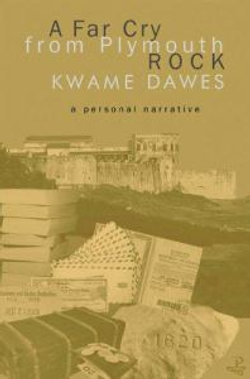In the process, he writes with great thoughtfulness about place (Ghana, Jamaica, Canada, the UK and South Carolina), about race, nation, religion, childhood, family and parenthood, sex and death. This is a rich, rich piece of writing that has the immediacy of a man thinking aloud and the careful structure of art. To its sensuous visions of place Dawes brings a poet's eye, to its narration and its description of people he brings the selective skills of a novelist, and to the conversations he records he brings a playwright's ear. It is a work of intellectual rigour, but also great tenderness in its account of his parents, of his own marriage and fatherhood. It is about the things that matter to him as a writer, and as a husband, father, teacher, church-goer and community activist, and one sees that for Dawes the two zones, the page and the world, cannot be divided. If, in the end, there is a conclusion, it is about embracing the abrasions and joys of difference. In a world where the pressures to homogenise are so great, one realises just how important it is that there are writers like Kwame Dawes around.



Share This Book: